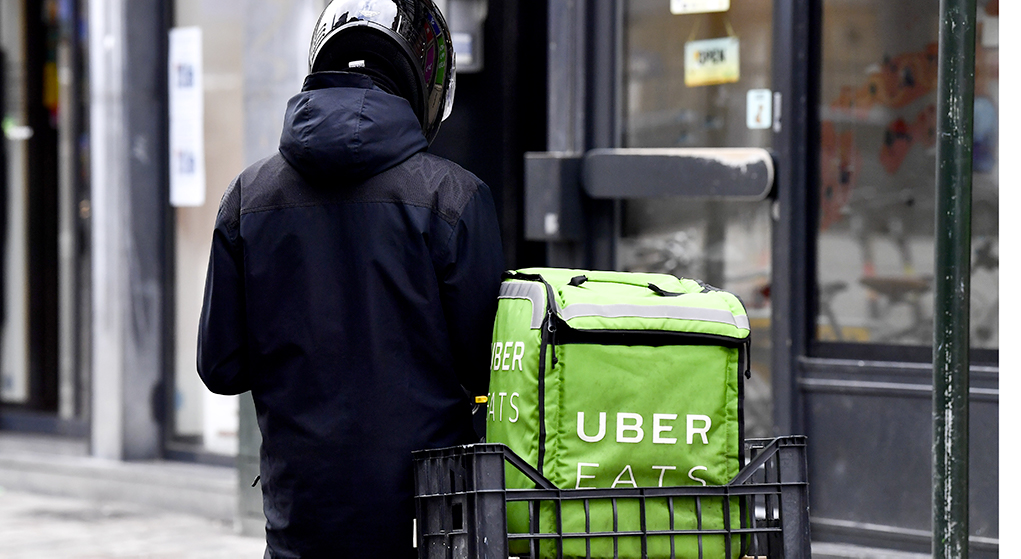The law introduced last year to better protect platform workers will be expanded to include compulsory insurance against accidents at work. The expense will be borne by the platform.
Platform workers who are self-employed but work for a digital platform will be covered by compulsory accident insurance under ordinary law from 1 January 2026, Economy Minister Pierre-Yves Dermagne confirmed on Friday after the Council of Ministers.
"The fact that many couriers do not have insurance is insane when we know that they are up to 15 times more likely to have a workplace accident than the average," the Minister said. "We are therefore adapting and expanding the law."
Once the law comes into force, every courier will be compensated for damage in the event of an accident that occurs while they are working and accidents occurring on the way to and from the place of work.
Compensation, no matter what
Major players in the market, such as Deliveroo and Uber, already offer compensation insurance, albeit on a more limited basis. The new obligation will not come into force until January 2026, to allow other players in the sector and give insurers the time they need to implement this service.
Dermagne stressed that the insurance which platform workers receive will not be a cheap token. The basic remuneration has been based on the primary incapacity benefit for a single self-employed person, which is generous given that this is generally more than platform workers earn.
"The cost of compulsory insurance for platform workers will be borne entirely by the platform itself and the insurer, despite any objections," said Dermagne.
A 'Work injury fund for self-employed digital platform workers' is also being set up to compensate the victim or his/her dependants if the platform has not taken out compulsory insurance. "This ensures that any platform employee who suffers an accident in the workplace will be compensated no matter what."
The measure protects workers while allowing them to maintain their self-employed status, which they argued was vital, as it corresponds best to how they carry out their activities and gives them the flexibility they need.

